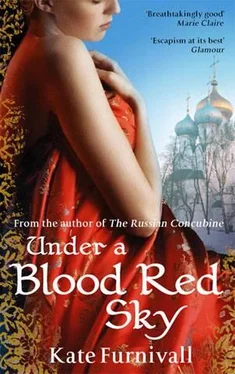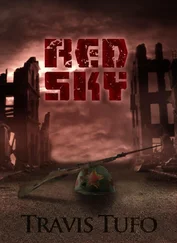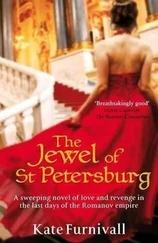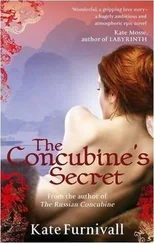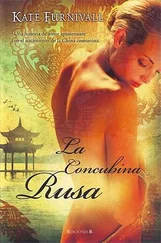‘Think about it anyway,’ she said with a try at lightness and a smile that cost her dear. ‘Thanks for taking me on your horse. And for this.’ She held up the note and ducked out into the road, dodging a handcart piled high with old newspapers tied together with wire. Her disappointment was so solid it almost choked her. She’d spoiled everything.
When she reached the other side of the road she turned to wave and saw that Mikhail was still standing exactly where she’d left him on the pavement, staring after her, but he was no longer alone. Beside him stood a slight female figure in a light summer dress. The dress had a patch near the hem but otherwise looked fresh and clean, unlike Sofia’s own shabby skirt. With a shock she recognised Lilya Dimentieva, the same woman she’d seen so intimately entwined with Mikhail last night, the one who’d come to the house to whisper with Zenia. The one with the child, Misha. That one.
She was smiling up into his face with tempting brown eyes and, as Sofia watched, Lilya slipped her arm through Mikhail’s, rubbing her shoulder against him like a cat. Together they set off down the street.
Sofia was furious. She wanted to snap something brittle between her fingers. Something like Lilya Dimentieva’s thin neck. She was furious with Mikhail and knew she had no right to be. He wasn’t hers.
She hurried down Ulitsa Gorkova with long unforgiving strides, indifferent now to the crowds milling round her, as though she could outpace her rage at that possessive little movement of Lilya’s. But she couldn’t. It burned as fiercely as hell fire, melting her from the inside.
As Sofia emerged from the gloomy apteka into the bright sunlight on Kirov Street, she clutched Rafik’s paper package in her hand and headed down towards the factories hunched together on the river bank. Here the River Tiva had widened out to a busy thoroughfare where long black barges nudged up alongside the warehouses and men were shouting and hurling ropes. Sofia looked at its oily restless surface and wondered how far a small rowboat might travel on it. It was something to consider.
She had no trouble finding the Levitsky factory. It was an ugly red-brick building that rose three storeys up from the muddy bank, with derricks jutting out over the river at the rear, and at the front a set of studded pine doors large enough to swallow carts whole. Attached to it at one side was a modern concrete extension with rows of wide windows that must flood the place with sunshine.
Is she in there? With you, Mikhail? Are you at this very moment holding out a glass of chai to her? Or lighting her cigarette, your fingers brushing hers, so that you can lean close and smell her perfume? Even catch a glimpse down the front of her pretty summer frock?
Sofia’s cheeks slowly coloured. She stood outside the factory for over an hour, and at the end of that time she shook herself and walked away, pushing past the bezprizorniki , the hollow-cheeked street urchins who scavenged on the edge of survival by thrusting whatever they had to sell under the noses of passers-by. Today it was Sport cigarettes for ten kopecks each. They smelled foul.
She retraced her steps to Lenin Square, which was dominated by an imposing bronze statue of Vladimir Ilyich Lenin himself, his arm upraised in exhortation. Alongside him were the colourful propaganda plakati that declared Smert Kapitalizmu! Death to Capitalism and Workers of the World, Unite!
The first person Sofia saw was Zenia. The gypsy girl was standing in the shade under the spreading branches of a lime tree near the newspaper boards with her bare arms draped round the neck of a young man, his hand curled snugly round her waist. He was wearing a uniform with a pale blue cap and epaulettes, the uniform of OGPU, the State Security Police. Quickly Sofia whirled away in the opposite direction, nipped past the open archway of a market hall and ducked round a corner.
‘Ah, what have we here? The beautiful tractor driver from Tivil, I do believe.’
It was Comrade Deputy Stirkhov from Raikom. And he was blocking her path.
Davinsky Camp July 1933
‘Sofia is dead.’
‘No. You’re lying.’
‘Anna, you’ve got to stop this. This stupid waiting.’ Tasha glanced up from the cards in her hand. ‘You’ve got to accept the fact that she’s not coming back. Not ever. For fuck’s sake, who in their right mind would turn up in this shithole unless-’
‘Shut up, Tasha,’ Anna said, but without rancour. ‘Sofia will come.’
They were sitting on Anna’s bed board playing poker with shabby homemade cards and, as usual, Nina was winning. The stakes were threads of cotton yanked from their skirts.
‘Nina, you’ll be opening a clothing factory soon,’ Anna laughed and threw down her hand of cards in disgust. ‘Who dealt me this rubbish?’
‘I did.’ It was the new girl, Lara. She was nineteen and tall, with pale skin and pale hair. None of them mentioned it, but she reminded them of Sofia. Somehow filled a gap for them all. ‘Anna,’ she asked with a quick flick of an ace, ‘what makes you believe she’ll come back? The temptations out there must be so strong.’
Tasha and Nina exchanged glances but Anna ignored them. ‘You don’t know her,’ she said firmly.
‘But Tasha has a point, she can’t be in her right mind to risk coming back here.’
‘She promised me.’
‘But a promise in here,’ Lara explained gently, ‘is not the same as a promise out there.’ She nodded towards the world beyond the barbed-wire fences. ‘In the real world people don’t gamble for pieces of thread to mend their clothes. And they don’t keep insane promises.’
‘The trouble with you, Lara, is that you haven’t been in here long enough yet.’
‘What do you mean?’
‘It drives us all a bit insane.’
Sofia is dead.
Tasha’s words jammed in Anna’s head like needles and she couldn’t pull them out. Yet still she refused to believe them and, as the night hours crawled past, she set about breathing life into her memories of Sofia. She was convinced that if she let her friend walk and talk and laugh and cry in her head, it would help to keep her walking and talking and laughing and crying out there in what Lara called the real world.
But at the same time she knew Tasha was right: only someone mad would return to Davinsky Camp out of choice. For the very first time doubt crept down her spine with cold fingers.
What is out there, Sofia? What is holding you?
She’ll come. I know she’ll come. She is tenacious.
Even as a girl she had possessed that tenacity. Anna recalled a story Sofia had told her one day on the trek to the Work Zone, a story about her childhood.
The sound of the whip was like a branch snapping, over and over. That was what Sofia had said. When she was eleven years old, her father was tied to a tree in the centre of the village and whipped to death in front of her. He was a priest. But in January 1917 he was known to be working with the Bolsheviks and that was as good as a death warrant. The troops of Tsar Nicholas II, Emperor of All the Russias, rode the eight versts from Petrograd, their horses’ bridles jangling in the cold still air as they entered the village, and they had unleashed their knotted knouts on him. He didn’t scream or curse, just prayed silently into the bark of the tree.
Sofia had waited till after the funeral, then in the early morning mist she plaited her long blonde hair into a thick braid down her back, pulled on her lapti boots and took herself into her father’s store shed in the back yard. There she filled a sack with a mixture of their winter-storage vegetables that she’d grown herself: potatoes, swedes and a few handfuls of turnips, and set off on the long road to Petrograd.
Читать дальше
